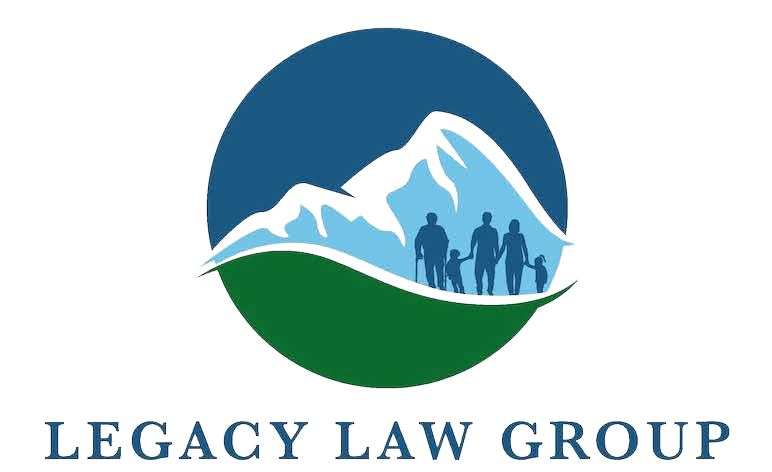PROBATE
If you are here to learn about Colorado probate after the passing of a loved one, we first want to say that we are very sorry for your loss. We hope that the information you find on this page will simplify any legal and administrative headaches you might otherwise face during such a difficult time.
With that said, probate in Colorado is a court-supervised procedure that helps to ensure the legal transfer of assets from the deceased to the rightful heirs or beneficiaries.
Probate is also necessary to:
-
- Prove the validity of the will
- Appoint someone to manage the estate (The “administrator” if there is no will or the “executor” if there is one)
- Inventory and appraise the estate property
- Pay any debts or taxes (including estate taxes)
- Distribute the property as direct by the will—or by the state law if there is no will
In Colorado , if someone has $75,000 in total assets or real property, they will probably have to have their assets probated.
WHAT’S SO BAD ABOUT PROBATE IN COLORADO AND WHAT SHOULD I DO NEXT?
Many residents in Colorado have heard that probate is bad news. It tends to be very expensive, it’s time-consuming, and it’s also a public process. The easiest way to avoid the probate process is to plan; but if you are now in a situation where you must go through probate courts to finalize the estate of a loved one, the best thing you can do is get educated and get help to complete the process as quickly, and cost-effectively, as possible.
HOW IS A PROBATE STARTED IN COLORADO?
Although any beneficiary or creditor can initiate probate, normally the person named in the will as the Executor starts the process by filing the original will with the court and filing a Petition with the probate court. If there is no will, typically a close relative of the decedent who expects to inherit from the estate will file the Petition.
HOW IS THE EXECUTOR CHOSEN?
If the decedent had a will, the person named in the will as the Executor will serve, if eligible. If that person is unable or unwilling to serve as Executor, or if there is no Will, then any interested family member or person can petition the Court to be the administrator of the Estate.
HOW IS THE EXECUTOR CHOSEN?
If the decedent had a will, the person named in the will as the Executor will serve, if eligible. If that person is unable or unwilling to serve as Executor, or if there is no Will, then any interested family member or person can petition the Court to be the administrator of the Estate.
HOW IS THE EXECUTOR CHOSEN?
If the decedent had a will, the person named in the will as the Executor will serve, if eligible. If that person is unable or unwilling to serve as Executor, or if there is no Will, then any interested family member or person can petition the Court to be the administrator of the Estate.
READY TO START?
MY LOVED ONE HAD A TRUST...WILL WE NEED
TO GO THROUGH PROBATE?
In most cases, no. If your loved one’s assets are owned in the name of a Trust, the family can contact a lawyer who will complete some paperwork and guide the loved ones through the process with ease without the need for court involvement.Unfortunately, many people who have a Trust think they have it all taken care of. But time and again, family members’ of a recently passed loved one come into my office and they find out they are facing the frustration, expense and delay of a probate, even though the person they loved had a trust.
Why is that?
Often the Trust was prepared many years ago and was never updated; and often, their loved ones’ assets were not owned in the name of their Trust. That is why it is so very important that you carefully choose your estate planning attorney and have regular reviews of your plan and assets so the planning you do now works as planned later.It’s why we do things so much differently than most other lawyers and law firms, here at Legacy Law Group.

-
WHAT ASSETS ARE SUBJECT TO PROBATE?
Assets owned solely in the name of the deceased person are subject to probate. Assets that pass by means of title, such as real estate titled as “Joint Tenants with Right of Survivorship,” or bank accounts titled as “Transfer On Death” are not subject to the probate process. Assets that pass by means of a beneficiary designation, such as life insurance or some retirement accounts, are also not subject to probate. In some situations, however, assets that would otherwise pass by title or beneficiary designation can be subject to the probate process. Talk to an attorney if you have questions about your specific situation.
-
HOW IS DISTRIBUTION OF THE ESTATE HANDLED IF THERE IS NO WILL?
If there is no will or trust, the estate will be distributed according to Colorado probate and intestate laws, which state that a person’s estate will be distributed in the following order: 1. Spouse 2. Children 3. Parents (if you have no children) 4. Siblings (if you have no children or parents).
-
HOW LONG DOES PROBATE TAKE?
The length of time of a probate will depend on several factors. It usually takes a minimum of 12 months and can take up to two years or even longer for complex cases.
CHOOSING THE RIGHT ATTORNEY FOR YOUR PROBATE CASE
The best way to ensure your probate is done right is to choose your attorney wisely. Do not assume that all attorneys are the same! Too many lawyers only “dabble” in probate or trusts. Don’t choose a lawyer who does probate as a sideline because these lawyers often blunder causing real problems for their client and their cases often take longer than those handled by experienced probate lawyers.You don’t have to use the attorney who prepared the Will either! Just because a particular attorney prepared the Will, this does not mean that attorney must handle the probate, nor are they necessarily the right person for the job. You need to be comfortable with the attorney and confident that they are the right attorney for you. Choosing your probate or trust lawyer is one of the most important decisions you will make.

CONTACT US FOR A POST
-DEATH ESTATE REVIEW
If you’re ready to get started with the probate process after the passing of a loved one, please contact our experienced probate attorneys at (303)954-9428 or use this link to schedule a complimentary 15-minute consultation to help determine your next best steps. We are here in service to making this all as easy as possible on you.
During this appointment, we will answer all of your questions about probate and guide you and your family through the next best steps. We are committed to helping you administer your loved one’s estate as quickly and efficiently as possible, and look forward to relieving any administrative or legal burdens you may face during this time of loss.
WHAT IS A REVOCABLE
LIVING TRUST?
This is an agreement with three parties: the Trust-makers, the Trustees (or Trust Managers), and the Trust Beneficiaries. For example, a husband and wife may name themselves all three parties to create their trust, manage all the assets transferred to the trust, and have full use and enjoyment of all the trust assets as beneficiaries. Further “back-up” managers can step in under the terms of the trust to manage the assets should the couple become incapacitated or die. Special provisions in the trust also control the management and distribution of assets to heirs in the event of the trust maker’s death. With proper planning, the couple also can avoid or eliminate death taxes on their estate. The Revocable Living Trust may allow them to accomplish all this outside of any court proceedings.
Whether you are young or old, rich or poor, married or single, if you own titled assets such as a house and want your loved ones to avoid court interference at your death or incapacity, consider a revocable living trust. A trust allows you to bring all of your assets together under one plan.
WHAT IS A LIVING WILL?
Sometimes called an Advance Medical Directive, a living will allows you to state your wishes in advance regarding what types of medical life support measures you prefer to have, or have withheld/withdrawn if you are in a terminal condition (without reasonable hope of recovery) and cannot express our wishes yourself. Oftentimes a living will is executed along with a Durable Power of Attorney for Health care, which gives someone legal authority to make your health care decisions when you are unable to do so yourself.
What does Intestacy mean?
If you die without even a Will (intestate), the legislature of your state has already determined who will inherit our assets and when they will inherit them. You may not agree with their plan, but roughly 70 percent of Americans currently use it.
WHAT IS A WILL?
The document a person signs to provide for the orderly disposition of assets after death. Wills do not avoid probate. Wills have no legal authority until the willmaker dies and the original will is delivered to the Probate Court. Still, everyone with minor children needs a will. It is the only way to appoint the new “parent” of an orphaned child. Special testamentary trust provisions in a will can provide for the management and distribution of assets for your heirs. Additionally. assets can be arranged and coordinated with provisions of the testamentary trusts to avoid death taxes.
HOW ARE WE DIFFERENT?
At Legacy Law Group, we believe in building lasting relationships with our clients. That’s why we offer a free assessment of your current estate plan every 3 years. Our commitment of keeping your plan up-to-date assures that it aligns with your evolving needs and circumstances, providing you with ongoing peace of mind.
WHAT IS INCLUDED IN AN ESTATE PLAN?
Legacy Law Group offers three levels of planning to suit your varying needs, and you get to choose the level of planning that best fits your family. From starter plans designed primarily for families with young children and not yet much in the way of financial wealth, to more robust plans for well-established families concerned with matters of asset protection, preservation and increased growth, we have you covered. When we meet for your Family Wealth Planning Session, we will review our three planning levels with you, and you will choose our own fee based on your budget and the planning options that are most important to you and your family.
WHAT IS THE DIFFERENCE BETWEEN A
WILL & A TRUST?
Wills and trusts are two of the most commonly used estate planning documents, and they form the foundation of most estate plans. While both documents are legal vehicles designed to distribute your assets to your loved ones upon your death, the way in which they work is quite different
Read these valuable reports
Seven Must Do's When Naming Guardians

The Special Needs Freedom Guide

Six Mistakes When Choosing An Attorney

REACH OUT TO OUR TEAM

Learn More About Anastasia
Anastasia FainbergAttorney at Law













